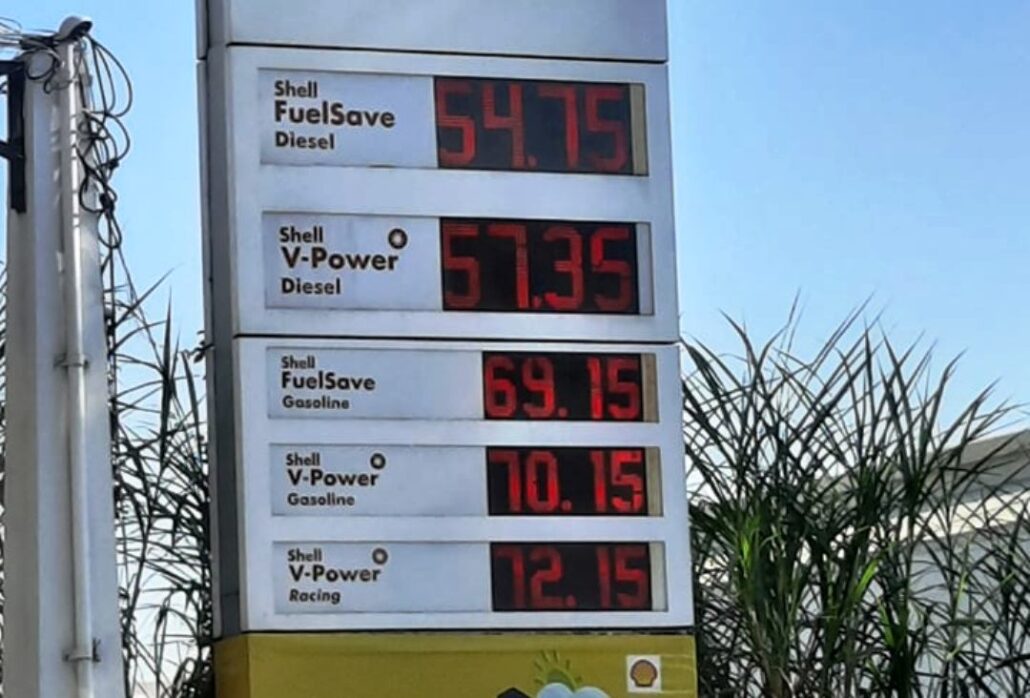Consumers demand cash aid, wage hike as more oil price increases loom
A network of consumers’ rights advocates demanded that government continue with the roll out of its promised aid to families severely affected by recent spikes in prices of goods and services.
The Samahan at Ugnayan ng mga Konsyumer para sa Ikauunlad ng Bayan (SUKI Network) said their demand for cash assistance for affected families, transport workers, small businesses and producers are unchanged despite the rollback in oil prices this week.
The group also pressed the government to implement salary increases and reduce prices by scrapping oil excise taxes to help poor families recover from pandemic consumer woes.
SUKI Network is composed of organizations of poor sectors such as drivers, the urban poor, workers, farmers, small entrepreneurs, academics, church people, advocates of the right to food and basic needs, social services, public utilities, among others.
Kalipunan ng Damayang Mahihirap (Kadamay) officer Eufemia Doringo said such demands are just as they see further increases in prices of goods and services as another round of oil prices loom nest week.
“Transport workers with the Pinagkaisang Lakas ng Tsuper at Opereytor Nationwide (PISTON) say they are far from recovered with the Php11.45/liter rollback. They have lost income from 11 consecutive weeks of oil price increases this year exceeding Php30.00,” Doringo said.
Doringo reported that in the urban poor community of Sitio San Roque, Barangay North Triangle, Quezon City, rice is being sold at Php35-36/kilo, pork bones at Php250-300/kilo, dried fish at Php10-20/piece, cabbage at Php50-80/piece and sugar at (Php53-Php70/kilo.
Consumer rights advocate Bantay Konsyumer, Kalsada at Kuryente (BKKK) also criticized increased electricity rates it said would impact so-called lifeline consumers.
BKKK convenor Prof. Louie Montemar said the government should consider using the Malampaya funds to subsidize electricity rates and offset the new Php0.0625 per kilowatt hour (kWh) increase, bringing rates to Php9.6467 per kWh.
Government shows lack of control
Ariel Casilao of Anakpawis meanwhile said that the rollback indicates price manipulation on the part of oil cartels.
“They easily announced a rollback after raking super-profits from the total several weeks’ hike of up to Php30.75 per liter in the price of diesel, up to20.50 for gasoline and PHp24.90 for kerosene,” Casilao explained.
The former legislator said the rise and fall in oil prices also shows government’s lack of control of the oil industry under the Oil Deregulation Law.
“As long as deregulation is in place, the nation and the public are at the mercy of giant oil companies’ opaque pricing schemes. The unbundling of the price of petroleum products in the recommended amendments to the deregulation law would be welcome,” Casilao said.
The SUKI network said it demands the unbundling of petroleum product prices, scrapping of the oil excise tax and Oil Deregulation Law, Php10,000 cash assistance for the 18 million poorest households, Php15,000 subsidy to producers, substantial support for small local businesses, and a Php750 national minimum wage.
Collect Marcoses’ unpaid taxes
The network said Duterte’s recent order to increase its monthly financial aid to the poorest Filipino families affected by oil price increases from Php200 to Php500 still only amounts to just Php16.67 per day.
It also cited figures from economic think tank IBON Foundation that the real value of the minimum wage has fallen from Php536.74 in 2016 to Php494.02 in February 2022.
According to IBON, the living wage is now at Php1,072 per day or Php25,252 per month for a family of five in the National Capital Region.”
“The argument that there aren’t funds for the people’s demands is worn and torn,” SUKI Network spokesperson Prof. Reginald Vallejos said.
“IBON has shown that if the Duterte government really wants to help its constituency, it can reallocate the trillions it budgeted for big-ticket infrastructure, debt servicing, and military and police modernization; recover tax cuts given to big corporations; and tax the bilionaires,” Vallejos said.
Kadamay’s Doringo added that the government must also decisively collect Php203 billion estate tax arrears of the heirs of the late dictator Ferdinand Marcos as additional source of funds for its cash aid roll out.
“Instead of letting them go scott-free while tens of thousands of small businesses are forced to close due to lack of government support, the Marcoses should be obliged by government to face the law and pay up”, Doringo said. # (Raymund B. Villanueva)

